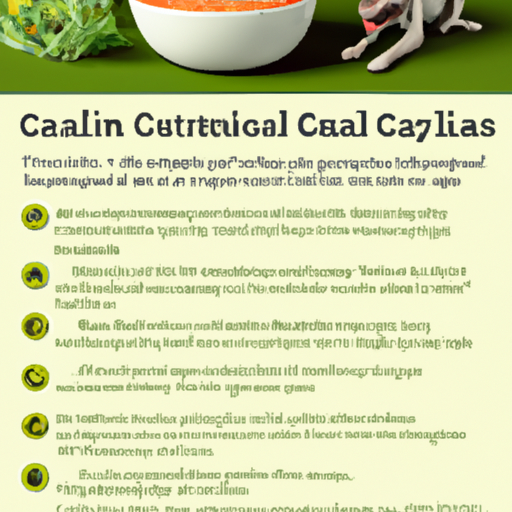In your role as a caregiver, you’re no stranger to the concerns and problems that can arise when caring for a canine. One issue you might encounter is high calcium levels in your dog. While this can be a daunting problem to face, there are natural ways to lower calcium levels in your dog that you can employ right in the comfort of your own home.
1. Understanding High Calcium Levels in Dogs
Before you can begin to address the problem, it’s important that you understand what high calcium levels in dogs mean. Hypercalcemia, or high calcium levels, can lead to serious health issues in dogs, including kidney stones, heart disease, and bone pain.
High calcium levels can be caused by a number of things, such as:
- A diet high in calcium
- Certain medications
- Certain diseases, like cancer or kidney disease
2. Natural Diet Changes
One of the most effective ways to lower calcium levels in dogs naturally is through diet changes. There are several foods you can include in your dog’s diet to do this:
-
Low-Calcium Foods: Foods like chicken, turkey, and fish are low in calcium and can help lower your dog’s calcium levels.
-
High-Fiber Foods: Foods high in fiber can help to reduce calcium levels. These include fruits, vegetables, and whole grains.
-
Avoid Dairy: Dairy products are high in calcium and should be avoided.
| Food Type | Examples |
|---|---|
| Low-Calcium | Chicken, turkey, fish |
| High-Fiber | Fruits, vegetables, grains |
| Dairy | Milk, cheese, yogurt |
3. Regular Exercise
Regular physical activity can help to lower calcium levels in dogs by promoting healthy bone growth and reducing calcium buildup. This could be as simple as daily walks or play sessions in the backyard.
4. Proper Hydration
Ensuring your dog drinks plenty of water is another natural way to reduce calcium levels. Water can help to flush excess calcium from the body and reduce the risk of kidney stones.
5. Consult with a Vet
While these natural methods can be effective, it’s always important to consult with a vet if you suspect your dog has high calcium levels. They can provide professional advice and treatment options tailored to your dog’s specific needs.
Frequently Asked Questions
Q: Can high calcium levels be genetic in dogs?
A: Yes, certain breeds are more prone to high calcium levels than others.
Q: Can I use supplements to lower my dog’s calcium levels?
A: While some supplements can help, it’s always best to consult with a vet before starting any new supplement regimen.
Q: How often should I monitor my dog’s calcium levels?
A: This can depend on your dog’s health status and breed. A vet can provide the best advice for your specific situation.
Q: Can a diet change alone solve high calcium levels in dogs?
A: While diet changes can help, they are often most effective when combined with other methods like exercise and proper hydration.
Remember, as a caregiver, your dog’s health is in your hands. With these natural methods, you can take a proactive approach to managing and reducing high calcium levels in your dog.



